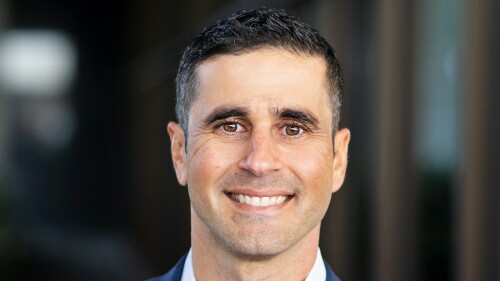A freestanding Smart & Final warehouse grocery store in Modesto, California, was sold to a private investor for $1.9 million—and at an 8.56 percent cap rate.
A nearly 9 percent cap rate in today’s market?
It was a triple-net-lease property in a tertiary market, explains Philip D. Voorhees, senior vice president in the Newport Beach, California, office of CB Richard Ellis Inc. and an expert on triple-net leases.
“Triple-net-lease properties are popular now with investors and real estate entrepreneurs because there are no good yield alternatives out there,” he says. “With cash yields less than 1 percent and bonds paying about 3 percent, individual investors are drawn to triple-net investments seeking higher returns, and that’s good news for developers.”
Triple-net-lease properties are usually freestanding buildings in which a tenant agrees to be responsible for maintenance, taxes, and insurance on the property with a long lease, leaving the investor to merely collect rent payments. Investors typically buy individual properties through commercial real estate brokers, including CB Richard Ellis, Grubb & Ellis, Marcus & Millichap, and other global real estate firms.
While triple-net properties have suffered during the recession, they have been less affected than other types of real estate, with prices falling about 15 percent from 2007 to 2009, compared with 40 percent for other classes of property. This is attributable, in part, to the smaller size of most triple-net investments—usually less than $3 million.
“Investors like the consistency of income with triple nets and the bond quality of the transaction,” says Voorhees, whose team has sold about 50 retail properties totaling nearly $400 million since the start of 2009. “Many investors are doctors or dentists who can pay $1 million to $2 million cash for a freestanding fast-food property or an automobile parts store, for instance. If an investor puts down between $1 million and $2 million, the return is going to be six or seven times the return in cash and more than double what the yield for bonds would be. And, depending on the deal, there’s also the possibility of putting debt on the property.”
A triple-net investor owns the building and can depreciate improvements, he continues. “Security and cash flow are consistent factors dominating today’s investor mind-set,” says Voorhees.
Developers interested in entering the triple-net-lease arena should always do their homework before jumping into the sector.
“Look for ground lease opportunities,” advises Voorhees, “because on a ground lease, the tenant is responsible for building the building and you own the land. A ground lease also requires less capital, since the tenant will supply the capital, so there is less risk for developers.”
Some other tips for triple-net-lease developers:
- Widely market the property for sale. “A lot of developers take the first offer they get or simply sell a triple-net transaction to a friend, receiving what they think is a good cap rate,” says Voorhees. “But if they marketed the property to a wider audience, they might have received maybe 50 to 100 basis points better.”
- Understand everything about a tenant and go for the most creditworthy—ideally a national firm. “Some area developers deal with a limited liability corporation [LLC], but the developer must know what credit backs the LLC,” Voorhees says. “It’s always best to sign with an established, creditworthy, national or international corporation. Second best is a subsidiary of that corporation with real assets. You have to know who you are dealing with, what entity guarantees the lease.”

![Western Plaza Improvements [1].jpg](https://cdn-ul.uli.org/dims4/default/15205ec/2147483647/strip/true/crop/1919x1078+0+0/resize/500x281!/quality/90/?url=https%3A%2F%2Fk2-prod-uli.s3.us-east-1.amazonaws.com%2Fbrightspot%2Fb4%2Ffa%2F5da7da1e442091ea01b5d8724354%2Fwestern-plaza-improvements-1.jpg)


